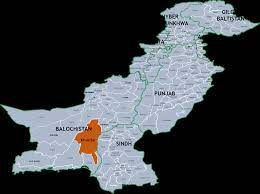Resolving tribal conflicts in Balochistan has never been a simple task, but it is crucial for the region’s development and prosperity. By nurturing and fostering trust developing, collaboration and inclusivity, we can pave the way for a brighter and more peaceful future for Balochistan and its people.
Balochistan is a region not only rich in history but in natural resources, has long been marred by tribal conflicts that threaten peace, stability, and development. One such conflict is the Wadh tribal dispute, which has caused immense suffering and hindered progress in the area. The resolution of this conflict largely depends on the involvement and leadership of tribal chiefs, who can play a crucial role in finding a path towards reconciliation and lasting peace.
courtesy google image

Though the tribal chiefs can certainly play a significant role in resolving the Wadh tribal conflict in Balochistan, justifiable peace requires a comprehensive approach that addresses the root causes of tribal conflicts. The authorities must invest in socio economic development, promote political inclusion, and mediate between tribal factions. The involvement of external actors must be limited to supportive roles, avoiding any interference that might further exacerbate tensions.
The tribal structure in the province Balochistan holds enormous meaning, with tribal chiefs wielding substantial influence over their respective tribes. These chieftains are not only respected and esteemed leaders but also key decision makers in resolving disputes and conflicts and upholding traditions and customs. The involvement of the tribal chief in mediating disputes can prove to be instrumental in finding harmonious solutions that benefit all parties involved.
Land ownership and influence usage have been at the core of numerous tribal conflicts. Scarce resources and a growing population have intensified competition over land, leading to clashes between tribes vying for territorial control. Historically, some tribal communities in Balochistan have felt marginalized and neglected by the central government, resulting in grievances that often manifest in conflicts.
Age old tribal customs, while essential to preserving cultural identity, can sometimes perpetuate cycles of revenge and blood feuds, making it challenging to find peaceful resolutions. Widespread poverty and limited access to education and basic services have fueled frustration among tribal populations, creating fertile ground for conflict to emerge.
Geopolitical interests and external actors exacerbate tribal conflicts by exploiting existing divisions for their gain, further complicating resolution efforts. To effectively address the root causes of tribal conflicts, a multi-faceted approach is required. Alongside the efforts of the tribal chief, the central government must take proactive steps to tackle the issues mentioned above. This includes ensuring fair distribution of resources, investing in education and infrastructure, and fostering political inclusivity to empower marginalized communities.
It is essential to recognize that the resolution of the Wadh tribal conflict requires much more than just the will of one individual. To achieve lasting peace, the root causes of tribal conflicts in Balochistan must be addressed. Moreover, engaging in dialogue and negotiation with all stakeholders involved is essential. Local community leaders, civil society organizations, and religious figures can play vital roles in facilitating dialogue and promoting understanding among warring tribes.

